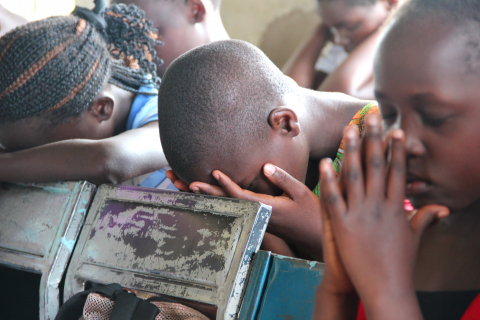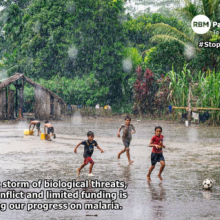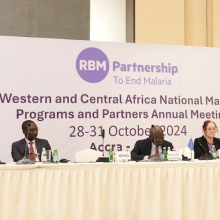In January, malaria was high on the agenda of the African Union Summit in Addis Ababa. The RBM Partnership to End Malaria, together with its partners, including the African Union Commission, the World Health Organization (WHO) and the African Leaders’ Malaria Alliance (ALMA), used the occasion to shine the spotlight on both the successes and the challenges of malaria control and elimination in Africa.
Malaria efforts in Africa are indeed at a crossroads. While some countries have seen a greater than 20% increase in malaria cases and deaths since 2016, others are showing that beating malaria is possible.
On 26 January, senior health, finance and foreign affairs officials from across the continent were briefed on the latest findings from the WHO’s World Malaria Report 2017 signaling that, for the first time in more than a decade, progress against malaria on the African continent, which accounts for almost 90% of the global malaria burden, has stalled.
Meanwhile, a recent RBM Partnership analysis of 30 African countries’ applications to the Global Fund to Fight AIDS, Tuberculosis and Malaria revealed that high-burden countries such as Nigeria and the Democratic Republic of the Congo (DRC) also face significant gaps in financing core malaria interventions over the next three years. Nigeria alone accounts for 27% of global malaria cases and faces a financial gap of US$ 1.4 billion to fully implement its national malaria strategic plan.
African leaders have committed to meeting the 2020 milestones of reducing the burden of malaria by 40%. As part of Agenda 2063, the leaders have also expressed their collective political aspiration to achieve a malaria free Africa. The recent uneven performance across the continent puts at risk the tremendous progress to-date and African leaders’ collective ambition to end the disease. Thus, the message delivered by the African Union Commission Chairperson Moussa Faki Mahamat at the joint AU-RBM event was unequivocal: we must sustain the political commitment to end malaria for good.
Examples of such political leadership and commitment were celebrated just two days later, on 28 January, at the annual ALMA Excellence Awards presented by the United Nations Secretary-General Antonio Guterres and incoming African Union Chairman and Rwandan President Paul Kagame.
Four countries — the Gambia, Madagascar, Senegal and Zimbabwe — were lauded for reducing malaria cases by more than 20% between 2015 and 2016, while Algeria and Comoros were awarded excellence for being on track to achieve more than 40% reduction in cases by 2020. Algeria could well become the first African nation to be certified as malaria-free by WHO later this year.
This year also marks the 20th anniversary of the RBM Partnership to End Malaria — itself inspired and championed by leaders from across the African continent. As we celebrate two decades of collective action through the RBM Partnership, we must make 2018 a watershed year for malaria efforts in Africa — from the highest political level down to the local communities where the everyday fight against malaria is being fought.
More information:
https://rollbackmalaria.com/news/leaders-urged-renew-commitment-malaria-free-africa/
http://alma2030.org/content/2018-alma-forum-docs

Latest Blogs


